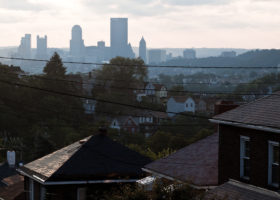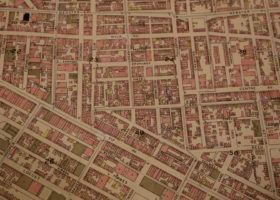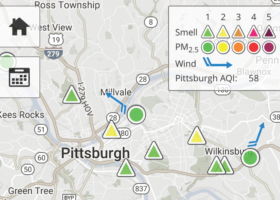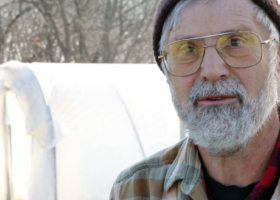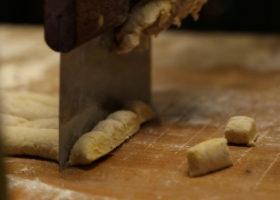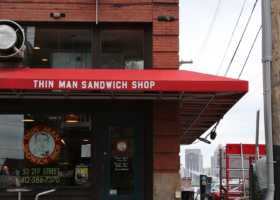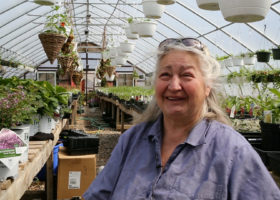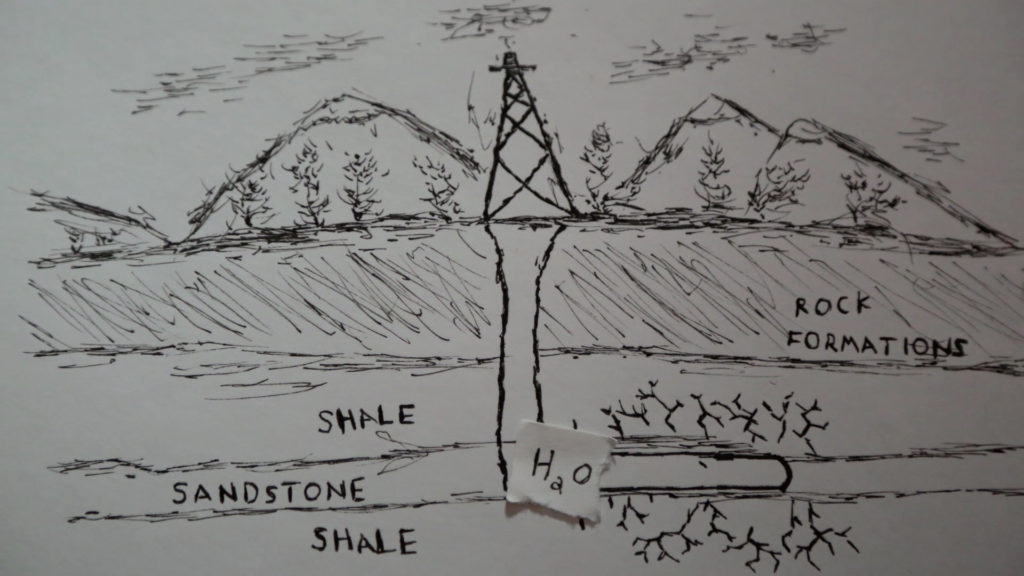
The Marcellus shale deposit formed hundreds of millions of years ago when the Appalachian Basin was the bottom of a Devonian sea. In 2003, Range Resources drilled a well in Washington County, Pennsylvania, and by 2005 the company had begun extracting Marcellus gas through hydraulic fracturing techniques that were used in gas plays in Texas. Today, there are 7,788 active wells in the commonwealth of Pennsylvania, and more still in surrounding states (notably, New York banned fracking in 2015 and Maryland’s moratorium is set to expire in 2017).
Most of the natural gas that extractors recover is stored in the pore spaces of the shale rock. Fracking sends water and chemicals deep into the earth to break up the layers of shale and thus release the gas. Many of the fracking fluids are guarded as trade secrets, though some studies have found formaldehyde, acetic acids, and boric acids within the mixtures. Through fracking—whether from the chemicals themselves or through naturally-occurring toxic substances disrupted by the extraction—groundwater can become contaminated, while atop the land, fracking sites pollute diesel and other forms of particulate matter through the air, causing respiratory illness and, as farmer Mick Luber has learned, falling onto farm crops.
Thirty years ago, Luber bought an idyllic piece of farm land in Cadiz, Ohio, west of Steubenville and Wheeling. Conventional farming had left the ground clay-like and lifeless from chemical fertilizers, but through Luber’s effective use of natural manure and crop rotation, his Bluebird Farm sprung to life. In recent years, Chesapeake Energy installed several wellpads and a compressor station on a hill above Bluebird Farm. Luber, who often sells his organic produce at Pittburgh farmers markets, is worried about fracking efforts contaminating his crops. In the short film piece below, an excerpt from the Food Systems film series, Luber takes us on a tour of his farm and the neighboring well pads and shows us firsthand the impacts of particulate matter on his livelihood—and our food.
This is a segment adapted from David Bernabo’s multi-part documentary Food Systems. See more extras from the ongoing series here.
